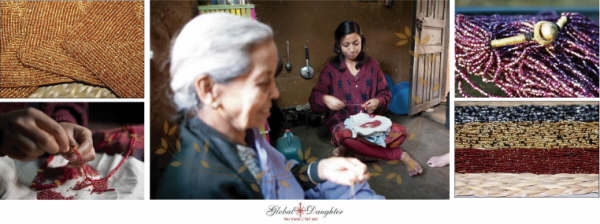This from Nepal Kantipur Report:
KATHMANDU, Nov 5 - It is not possible to provide justice to survivors of trafficking and to punish traffickers unless there is a bilateral treaty between Nepal and India, a regional conference concluded.
"Countries in South Asia should have a common legal standard to trace and punish traffickers," said Sabin Shrestha, an advocate associated with Forum for Women, Law and Development (FWLD). "For Nepal, special bilateral treaty with India is a must to combat human trafficking."
He said this at the Regional Meeting for Media, Lawyers and Professionals organised by United Nations Development Fund for Women (UNIFEM).
According to Shrestha, Nepal is the country of origin and India is the major destination of human trafficking. The current agreements between the two countries do not include human trafficking. As a result, it is very difficult to produce adequate proof to punish traffickers.
"Only brokers are getting punishment not those who buy our Nepali people," Shrestha said. "If there is proper extradition treaty or common standard legal provision, it would be easy to punish both brokers and buyers involved in human trade."
According to him, till date, evidences documented in India are not accepted as proof in Nepal. For example if an NGO rescues a Nepali woman from an Indian brothel, Nepali authorities do not take this as proof.
There should be a record of those leaving for India and coming from India, which would make it easier to trace traffickers, he said.
Due to lack of sufficient proof, legal protection and support mechanism as well as social stigma and threats from traffickers, survivors of trafficking do not register their case with the police. He also said that the very few incidences of conviction have deterred survivors.
According to one study carried out by FWLD, only in about 33 percent of the registered cases is there a conviction.
International Labor Organization estimates that about 12,000 women and children are trafficked from Nepal every year. However, police records show that during 2006/07 only 112 cases of trafficking were filed with the police, while the number during 2005/06 was 97 and it was 72 in the year 2004/05.
Aruna Thapa of UNIFEM said that SAARC Convention on Preventing and Combating Trafficking in Women and Children for Prostitution, 2002, also has provisioned for bilateral treaty. "But this has not been followed up, due to which traffickers go scot-free as Nepali authorities cannot take action against Indian criminals involved in human trafficking and Indian authorities cannot punish Nepali traffickers," said Thapa.

No comments:
Post a Comment